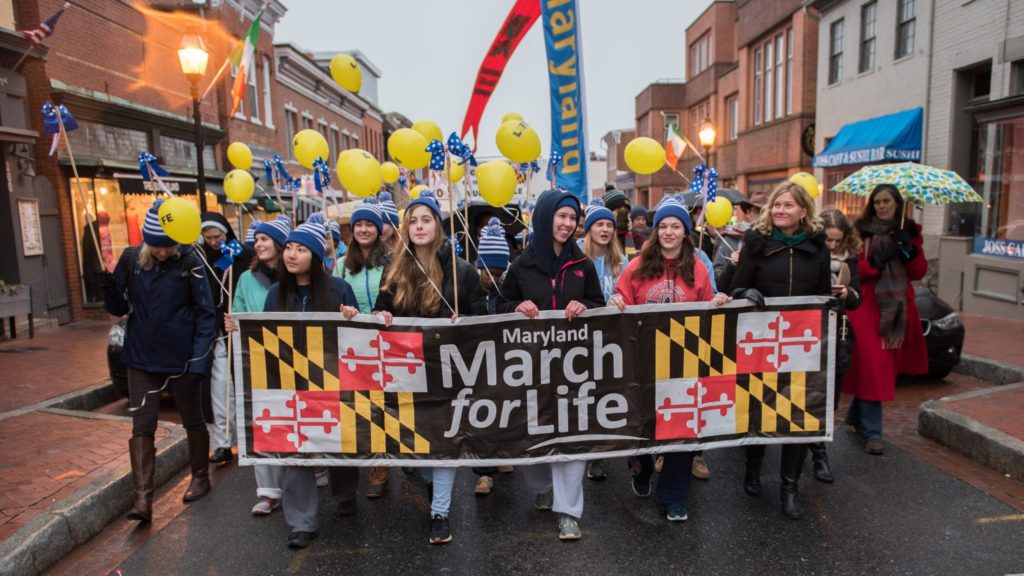Abortion advocates in at least 15 states are seeking to qualify ballot measures for November that would enshrine abortion protections in law or their state constitutions, and some efforts recently got a step closer.
Maryland and Florida will have efforts to enshrine abortion protections in their state constitutions on the ballot. A comparable effort in New York was tossed off the ballot -- for now -- when it was blocked May 7 by a judge who found that state lawmakers failed to follow procedural rules for passing constitutional amendments. Supporters plan to appeal. Abortion is legal in the Empire State through 24 weeks but with broad exceptions after that point.
Maryland's Catholic bishops issued a statement May 8 objecting to the November 2024 ballot measure in that state. "This is an important time for us to reiterate our commitment to the protection of all human life," they said. "We oppose the 'Right to Reproductive Freedom Amendment' as it contradicts the fundamental principles of respect for human dignity and the inherent right to life."
"Our opposition to this initiative is rooted in our unwavering concern for the well-being of women and children. Abortion not only ends the life of an innocent child but also poses significant risks to the physical, emotional and spiritual health of women," said the statement signed by Baltimore Archbishop William E. Lori, Cardinal Wilton D. Gregory of Washington and Bishop William E. Koenig of Wilmington, Delaware. All have members of their flock who live in Maryland.
In encouraging Catholics and others to reject the amendment, they said abortion perpetuates a "throwaway culture" and that the amendment would divert resources from women's well-being, risk the rights of health care workers and limit the ability of elected officials to respond to changing needs or information.
Efforts for similar amendments to qualify for the ballot are still underway in several states including Arizona and Montana, where closely watched races for the U.S. Senate also will take place.
In Missouri, supporters of such a ballot measure said May 3 they turned in more than 380,000 voter signatures -- more than double the 171,000 required to qualify for the ballot. The office of Secretary of State Jay Ashcroft, a Republican, must verify the signatures in order for the measure to be placed on the ballot.
Earlier this year, the Catholic bishops of Missouri urged all Catholics and people of goodwill "to not sign any petition that would put this amendment on the ballot."
"The Catholic Church supports and defends society's most vulnerable, especially women and children, through accompaniment, social services, and material assistance," the bishops said.
"A misleading proposed amendment to the Missouri Constitution suggests that a 'right to an abortion' is needed to protect women, while the amendment could actually put women at risk and endanger preborn children," they said. "This ballot initiative would legalize abortions in this state and remove long standing health and safety standards for women. In addition, this initiative does nothing to reduce or eliminate the underlying social causes for abortion and does not further a true culture of life in the state."
Missouri Right to Life led a "Decline to Sign Campaign" to educate and activated "countless Missourians to fight the battle to 'Keep Missouri Pro-Life!'"
On May 1, supporters of an abortion ballot measure In South Dakota also said they collected enough signatures to qualify.
Ballot measures on abortion have so far proven elusive for the pro-life movement in previous elections in 2022 and 2023, despite achieving their long-held goal of reversing Roe v. Wade when the U.S. Supreme Court issued its Dobbs v. Jackson Women's Health decision, which overturned the 1973 Roe decision and related precedent establishing abortion as a constitutional right. After that decision returned the abortion issue to the legislature, some states moved to expand access to abortion, while others passed legislation limiting the procedure or providing new revenue streams of support for women and families facing unplanned pregnancies.
Ohio voters on Nov. 7, 2023, approved a measure to codify abortion access in that state's constitution, legalizing abortion up to the point of fetal viability -- the gestational point at which a baby may be capable of living outside the uterus -- and beyond, if a physician decided an abortion was necessary for the sake of the mother's life or health. The Ohio results were not an outlier, as they followed previous losses for the pro-life movement at the ballot box when voters in California, Kentucky, Michigan, Montana, Vermont and Kansas either rejected new limitations on abortion or expanded legal protections for it.
After victories at the ballot box, abortion advocates across the country sought similar outcomes in their own states.
In Montana, that state's Supreme Court in April allowed an effort to add additional protections for abortion through a ballot measure to move forward. That state currently permits abortion at any point prior to fetal viability.
Montana's Catholic Bishops Austin A. Vetter of Helena and Jeffrey M. Fleming of Great Falls-Billings wrote a May 3 message urging "all people of goodwill to decline to sign the petition to place this dangerous amendment on our ballot."
"Trusting in God, we invite all Montanans to pray for the defeat of this Constitutional Initiative and stand in defense of women, children and all those threatened by this extreme proposal," their message said.
The Catholic Church teaches that all human life is sacred from conception to natural death, opposing direct abortion as an act of violence that takes the life of the unborn child.
After the Dobbs decision, church officials in the U.S. have reiterated the church's concern for both mother and child, and called to strengthen available support for those living in poverty or other causes that can push women toward having an abortion.

